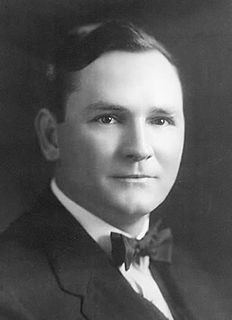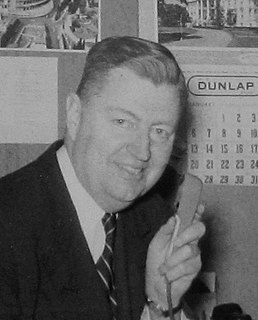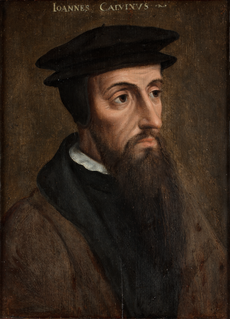
Bob Jones University (BJU) is a private, non-denominational evangelical university in Greenville, South Carolina, known for its conservative cultural and religious positions. The university, with approximately 2,500 students, is accredited by the Southern Association of Colleges and Schools Commission on Colleges (SACSCOC) and the Transnational Association of Christian Colleges and Schools. The university's athletic teams, the Bruins, compete in Division II of the National Christian College Athletic Association (NCCAA) and provisionally in Division III of the National Collegiate Athletic Association (NCAA). In 2008, the university estimated the number of its graduates at 35,000; in 2017, 40,184.

Evangelicalism, also called evangelical Christianity, or evangelical Protestantism, is a worldwide trans-denominational movement within Protestant Christianity that maintains the belief that the essence of the Gospel consists of the doctrine of salvation by grace alone, solely through faith in Jesus' atonement. Evangelicals believe in the centrality of the conversion or "born again" experience in receiving salvation, in the authority of the Bible as God's revelation to humanity, and in spreading the Christian message. The movement has long had a presence in the Anglosphere before spreading further afield in the 19th, 20th and early 21st centuries.

Presbyterianism is a part of the Reformed tradition within Protestantism that traces its origin to the Church of Scotland.

Christian fundamentalism, also known as fundamental Christianity or fundamentalist Christianity, is a movement emphasizing biblical literalism. In its modern form, it began in the late 19th and early 20th centuries among British and American Protestants as a reaction to theological liberalism and cultural modernism. Fundamentalists argued that 19th-century modernist theologians had misinterpreted or rejected certain doctrines, especially biblical inerrancy, which they considered the fundamentals of the Christian faith.

John Richard Rice was a Baptist evangelist and pastor and the founding editor of The Sword of the Lord, an influential fundamentalist newspaper.
The National Association of Evangelicals (NAE) is an association of evangelical denominations, organizations, schools, churches and individuals, member of the World Evangelical Alliance. The association represents more than 45,000 local churches from nearly 40 different denominations and serves a constituency of millions. The mission of the NAE is to honor God by connecting and representing evangelicals in the United States.

Robert Reynolds Jones Sr. was an American evangelist, pioneer religious broadcaster, and the founder and first president of Bob Jones University.

Robert Reynolds Jones Jr. was the second president and chancellor of Bob Jones University. Born in Montgomery, Alabama, Jones was the son of Bob Jones Sr., the university's founder. He served as president from 1947 to 1971 and then as chancellor until his death.

Carl Curtis McIntire, Jr., known as Carl McIntire, was a founder and minister in the Bible Presbyterian Church, founder and long-time president of the International Council of Christian Churches and the American Council of Christian Churches, and a popular religious radio broadcaster, who proudly identified himself as a fundamentalist.
James Parker Dees was the founder and first bishop of the Orthodox Anglican Church and the Orthodox Anglican Communion. Dees was born in Greenville, North Carolina on December 30, 1915, the son of James Earle Dees and Margaret Burgwin (Parker) Dees. He graduated in 1938 from the University of North Carolina at Chapel Hill with a Bachelor of Arts (BA) degree in political science and economics, then took a year of graduate study in international relations. From 1939 until 1942, he worked for the Atlantic Coast Line Railroad in Greenville, North Carolina. For two years after the Second World War, he was a baritone soloist with the New York Opera Company. He then studied at the Protestant Episcopal Church’s Virginia Theological Seminary for his Bachelor of Divinity degree, graduating in 1949. He was ordained as a deacon in the Episcopal Church on June 29, 1949; and as a priest by Thomas Henry Wright, Bishop of East Carolina, at the Church of the Holy Cross, in Aurora, North Carolina, on January 19, 1950. As a member of the Diocese of North Carolina, he served in charges in Aurora, Beaufort, and Statesville. His concerns about advancing liberalism caused him to withdraw from the denomination in 1963. Dees was discouraged from joining the Reformed Episcopal Church by fundamentalist leader Carl McIntire because of the REC's alleged association with groups perceived as being neo-evangelical. The decision to form a new jurisdiction was made. Dees founded the Anglican Orthodox Church on November 17, 1963 - the first religious body to withdraw from the PECUSA in the modern era. On Passion Sunday, March 15, 1964 Dees was consecrated a bishop by Wasyl Sawyna of the Holy Ukrainian Autocephalic Orthodox Church of North and South America, assisted by Orlando Jacques Woodward, a bishop of Old Catholic succession.
Conservative evangelicalism is a term used in the United Kingdom to describe a theological movement found within evangelical Protestantism and is sometimes simply synonymous with evangelical within the United Kingdom. The term is used more often in the first sense, but conservative evangelicals themselves tend to use it in the second. Conservative evangelicals are sometimes called fundamentalists, but typically reject that label and are keen to maintain their distinct identity, which is more Reformed. In this sense, conservative evangelicalism can be thought of as being distinct from liberal evangelicalism, open evangelicalism, and charismatic evangelicalism. Some conservative evangelical groups oppose women ministers or women preachers in mixed congregations.
The Independent Board for Presbyterian Foreign Missions (IBPFM) is a small Presbyterian mission organization, which early in its history became an approved agency of the Bible Presbyterian Church. Founded in 1933 by J. Gresham Machen, the IBPFM played a significant role in the Fundamentalist–Modernist Controversy within the Presbyterian Church in the U.S.A. The Independent Board continues under its founding charter, maintaining its original purpose of "promoting truly Biblical missions" consistent with Presbyterian doctrine and polity.
The Redeemer Seminary was an Evangelical, Reformed, Christian theological seminary based in Dallas with a branch in Austin, Texas.
The Presbyterian Church in the Republic of Korea or the KiJang Presbyterian Church is an ecumenically-minded Presbyterian denomination in South Korea.

William Edward Biederwolf was an American Presbyterian evangelist.
As of June 2017 Foundations Baptist Fellowship International (FBFI), formerly the Fundamental Baptist Fellowship International, is a fellowship of Independent Fundamental Baptist individuals.

In South Korea, there are roughly 20.5 million Christians of whom 15 million are Protestants; of those some 9 to 10 million are Presbyterians. Presbyterians in South Korea worship in over 100 different Presbyterian denominational churches who trace their history back to the United Presbyterian Assembly.
The Fundamentalist Presbyterian General Assembly in Korea was founded in 1983 by Pastor Yum Haeng-Soo and Pastor Hwang Oh-Gyo. The reason of the founding a new denominations that they believed that Korean churches were bowing to mammonism, secularism, syncretism and had to return the main tenets of the Bible.Yum Haeng-Soo begun to promote fundamental Reformed theology. In 2004 it had 70,000 members in 216 congregations. It subscribes the Apostles Creed and the Westminster Confession.
The Pyongyang Theological Seminary is a Protestant theological seminary in Pyongyang, the capital of North Korea. It is run by the government-controlled Korean Christian Federation (KCF) and trains pastors and evangelists for it.








